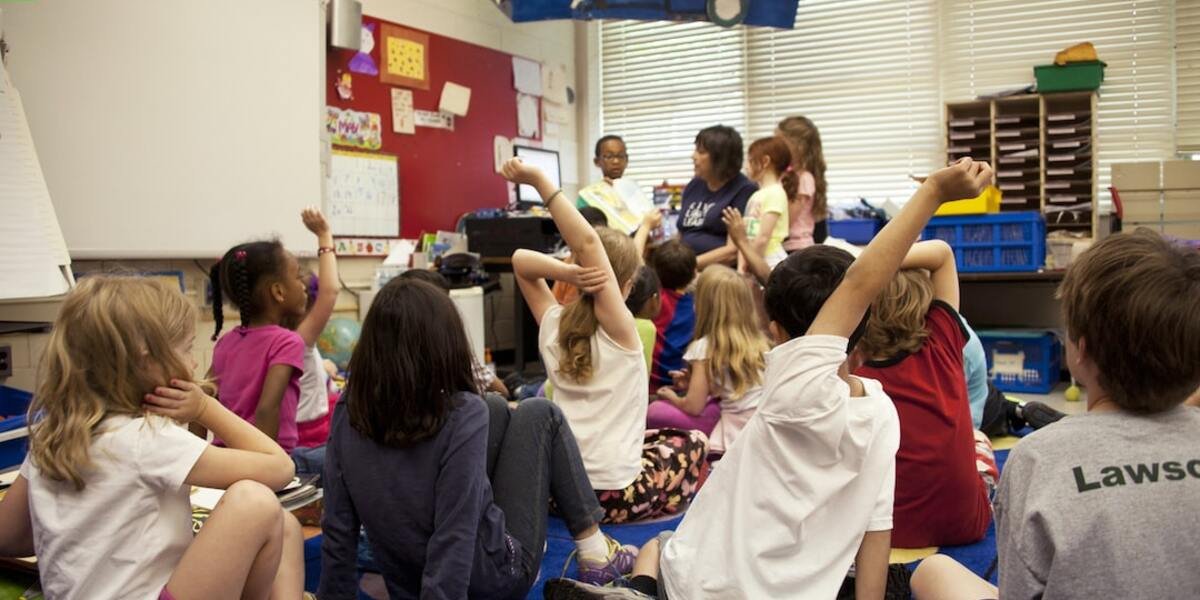Teacher Professional Development: Exploring the Essential Elements for Success
The role of teacher professional development in shaping the future of our children cannot be overstated. It is a critical factor that influences teaching practices and subsequently students’ learning outcomes. With well-trained educators, schools can create an environment conducive to optimal student growth – mentally, physically and socially.
Focusing on this vital aspect also encourages collaboration among educators, providing opportunities for shared expertise ultimately benefiting both teachers and pupils alike. Whilst ongoing education has always been acknowledged as important by professionals within the sector; understanding its essential elements often poses unique challenges to parents wishing to support their child’s educational journey more effectively.
Did you know?
A surprising fact is that over 59% of teachers state they’ve never received any form of professional development specifically tailored to their individual needs, despite research identifying personalized training as a key factor for successful teaching outcomes (Gates Foundation, 2014).
Understanding the Impact of Teacher Professional Development on Student Success
As educators and parents, it’s imperative to understand the role of teacher professional development in shaping a child’s educational journey. In this era where learning models are continuously evolving, ensuring teachers remain updated with newfound knowledge and pedagogical techniques is crucial. Teacher professional development programs serve as an avenue for such growth – equipping them with strategies that enhance their teaching methodology while also positively impacting student success.
Analysis from numerous studies emphasize the correlation between effective teacher professional development and improved student performance., For instance, when teachers participate in extensive training sessions aimed at improving classroom instruction methods or subject-matter proficiency, there has been observed improvement in students’ grades over time. These gains aren’t merely academic; enhanced teaching abilities often result in bolstered self-confidence among children, fostering social-emotional skills alongside cognitive ones.
But how can we foster meaningful participation of educators? Here lies the responsibility shared by administrators and even parents – both should encourage continuous education beyond normal working hours for these educational front-liners. With collaborative efforts involving all stakeholders on board – schools offering conducive environments for up-skilling workshops coupled with parental support acknowledging its importance- our pursuit towards maximizing every child’s potential becomes more feasible than ever before.
The Correlation Between Educator Training and Academic Achievement
Active professional development for teachers plays a significant role in shaping the academic prospects of students. It is an ever-evolving learning process designed to strengthen educators’ performance and, consequently, improve student achievement.
In-depth research conducted over recent years has helped us understand the correlation between teacher professional development and student success more clearly. With changes seen in 2023 teaching methodologies due to increasing technology dependence and online classrooms, new forms of training have emerged for educators that directly impact how they approach their curriculum with students.
It’s interesting to note that when teachers are equipped with better tools through ongoing educational courses or seminars – be it modern tech-based strategies or refined conventional approaches – there’s noticeable improvement exhibited by their pupils acadically. This suggests just how powerful well-prepared instruction can change classroom dynamics positively.
One key aspect often explored during such developmental programs concerns understanding different learning styles among children; this helps devise individualized teaching techniques matching each child’s pace and comprehension levels—an invaluable asset when aiming at holistic education growth across diverse set-ups.
Moreover, fruitful interactive knowledge exchange among peers also occurs within these platforms which encourage healthy ideation on tackling classroom difficulties–further reinforcing its significance towards positive academic outcomes.
Furthermore, various studies highlight improved leadership qualities amongst trained instructors leading them treading innovative ways forwarding engaging lessons whilst boosting overall class participation from shyest corners too—a ripple effect translating into progressive outputs!
Measuring the Outcomes: Long-Term Benefits for Students
Evaluating the effectiveness of teacher professional development is as significant as the training itself. Outcomes can be measured through observable long-term benefits for students, which provide valuable insights into their growth and success rate.
One clear benefit of effective teacher professional development lies in improved student achievement scores. Teachers who are exposed to high-quality training often demonstrate enhanced teaching strategies that directly impact student learning outcomes. As per a 2023 study published by Harvard Education Review, there’s a correlational relationship between regular participation in continuing education programs for teachers and an upward trend in students’ standard test results.
Another crucial aspect to consider when measuring the long-term benefits on students is their motivation and engagement level within classroom settings. Data suggests that educators with top-notch skills foster more interactive lessons promoting active involvement from pupils leading less distraction during studying hours — it’s no surprise they enjoy going school more!
Moreover, not only does consistent teacher professional development influence academic performance but also caters social-emotional aspects such cognitive abilities or resilience capacity among learners – developing them holistically over time.
Whether kindergarteners growing up feeling secure due competent handling early-years educators post rigorous trainings or graduate students benefiting ingenious thesis guidance expert professors – every stage gets potentiated quality input resulting elevated output standards uniformly.
Strategies for Effective Collaboration Between Parents and Educators During Professional Growth
In the world of education, effective collaboration between parents and teachers plays a key role in promoting teacher professional development. It’s not just about filling out report cards or attending parent-teacher conferences anymore; it’s much more than that now. In 2023, we observe a notable paradigm shift that focuses on creating an environment where parents and educators can work together towards common goals.
One such strategy involves setting up regular communication channels. Incorporating digital tools has been extremely beneficial to facilitate these interactions consistently – from emails to virtual meetings using platforms like Zoom or Google Meet, ensuring geographic barriers no longer hinder progress as they once did. Parents are getting updates regularly regarding their child’s academic performance while receiving strategies from teachers to help children at home.
Additionally, involving parents directly into training programs meant for educator growth is another innovative approach gaining traction today due to its effectiveness in fostering understanding rather than confusion or suspicion about new teaching methodologies being implemented in classrooms across schools globally.Community-based forums with expert-led discussions can offer deeper insights into learning enhancements and curricular reforms aimed at better learner outcomes.
The strength of this connection cannot be overstated: when both parties share similar objectives – the student’s best interests – each brings unique perspectives catering solutions fitting individual needs establishing rounded educational success stories achieving remarkable results benefiting all stakeholders remarkably well-off every passing year!
Fostering Communication: Tools & Techniques
In an era where digital technology has almost completely taken over, ensuring effective communication between parents and educators during the process of teacher professional development can be a bit complicated. Yet it’s crucial to achieve optimal student progress.
To begin with, let’s underscore the necessity for open dialogue. Regular meetings are a basic yet efficient way to ensure that all parties remain on the same page. These gatherings keep everyone informed about recent developments in teaching methodologies or changes within school policies affecting students’ learning experiences.
Next up is leveraging technology—email updates could serve as key conduits for swift information exchange between home and school authorities. In addition, bespoke software like parent-teacher collaboration apps can facilitate secure discussion forums where queries may be addressed promptly by relevant individuals without any ambiguity or delay.
Apart from real-time conversations through video conferencing platforms like Zoom or Microsoft Teams, traditional methods such as telephonic conversation still hold value when looking forward to one-on-one interactions that entail detailed discussions concerning student performance in specific areas of study.
Consider using social media channels too! Many schools have now established accounts on popular platforms including Facebook and Instagram which they use not just for extending outreach but also fostering greater engagement amongst their communities comprising parents, teachers along with students themselves!
Lastly but importantly do not underestimate power handwritten notes—they carry personal touch often missing from other forms electronic communication thereby successfully building stronger bonds trust respect between families educational institutions involved journey towards enhancing childhood education this ever-evolving world 2023.
Setting Goals Together: A Framework for Parent-Teacher Partnerships
Today’s educational landscape emphasizes the need for collective responsibility in a child’s development. As we navigate through 2023, teacher professional development is taking center stage in integrating parental involvement into curriculum planning and execution.
One of the key strategies that mirror this shift is goal setting. The collaborative process requires parents and educators to work closely towards identifying clearly defined objectives aligned with children’s academic needs.
Explore how you can strengthen parent-teacher partnerships by setting collaborative milestones for student growth.
Recognize each other’s areas of expertise; while teachers bring classroom experience, parents provide insights from home interaction thereby providing a holistic view about the student’s needs.
Based on common understanding, formulate SMART (Specific-Measurable-Achievable-Relevant-Time-bound) goals pertinent to children’s cognitive progress or behavioral improvement which both parties can agree upon.
Regular exchanges are pivotal in staying abreast of developments at school and home front alike related to set goals thus enabling corrective measures if required promptly.
Investing in Continuous Learning Opportunities for Teachers to Support Classroom Excellence
Investing in teachers is investing in the future. It’s crucial to understand that a classroom’s effectiveness lie not only on curriculum and resources, but mainly on the quality of its educators. Professional development for teachers plays an instrumental role in advancing their skills, ensuring they remain updated with latest pedagogical strategies.
Continuous learning opportunities promote an enriching career path for teachers while sculpting them into adaptable professionals capable of tackling diverse educational challenges. In 2023 and beyond, teacher professional development takes precedence due to fast-paced advancements changing how education itself is perceived and disseminated.
In supporting our children’s learning journey as parents or guardians or even fellow educators, emphasizing ongoing enhancement programs become necessary; fostering innovation within classrooms, encouraging critical thinking amongst students whilst providing emotional support during rapidly transforming times like these where digital revolution has seeped deep roots into traditional teaching methodologies.
Identifying Key Areas for Educational Advancement
In the journey of fostering excellence in classrooms, identifying crucial areas for educational advancement is a substantial stride. With an emphasis on ‘teacher professional development’, here’s how we can hone this approach.
Firstly, it’s important to acknowledge the shifting landscape of education. Teachers are no longer mere bearers of knowledge; they’re facilitators helping students navigate through information and apply it in relevant contexts. As educators rise up to meet these evolving demands, their skillset needs periodic upgrading too – hence highlighting the importance of teacher professional development.
Secondly, technology has become pivotal in modern-day teaching methods and strategies which need catching up from teachers’ end as well. Businesses across industries have seen drastic improvements with technological intervention – be it productivity tools or communication platforms that enable remote work seamlessly.
Equally so for schools where adopting tech-savvy learning management systems (LMS), digital whiteboards etc., could facilitate personalized experience based on each child’s pace & comprehension levels.
This calls out loud for regular training sessions ensuring teachers stay abridged with ever-evolving ed-tech trends following hands-on practice under skilled guidance.
Evaluating Professional Development Programs: Criteria for Selection
The importance of facilitating ‘teacher professional development’ cannot be overstated in 2023. An integral part to maintaining classroom excellence is ensuring that teachers are consistently updating their skills and knowledge base. Proactive investment in continuous learning opportunities leads not only to improved teaching standards but also towards a more inclusive, dynamic, and effective educational environment.
Evaluating the right professional development programs for educators can often feel like an uphill task given the myriad options available today. But don’t worry! Knowing what criteria you should focus on during your selection process makes this task less daunting.
1. Relevance: Examine if the program content aligns with both curriculum requirements as well as individual educator’s needs or gaps in skill sets.
2. Practicality: Consider whether theories taught are practical enough for real-time situations inside classrooms? Can these newly learned methods be implemented seamlessly into daily lesson plans?
3. Quality of Training Material: Assessing information quality is crucial because it impacts overall effectiveness of training sessions – high-quality materials always aid better understanding.
4.Refreshment Courses – Post-training refresher courses play key roles too; they help consolidate all new learnings by offering repeated exposure over time.
5.Evaluation Methods – Check how progress monitoring or gap identification happens within chosen teacher professional development course post-completion? Do they offer assessments/feedback tools?
Conclusion
In a nutshell, “teacher professional development” is the secret ingredient in the recipe for successful education. It not only fosters personal growth among educators but also cultivates an enriching learning environment that molds young minds into future leaders. So dear teachers, continue to thrive and grow – your journey of improvement echoes in every child’s success.
Thank you for joining us on this exploration of Teacher Professional Development today! Should you have further queries or if enthusiasm for childhood education, insights on parenting, and educator support ignites your curiosity, our trove of information awaits your discovery. Happy browsing!







